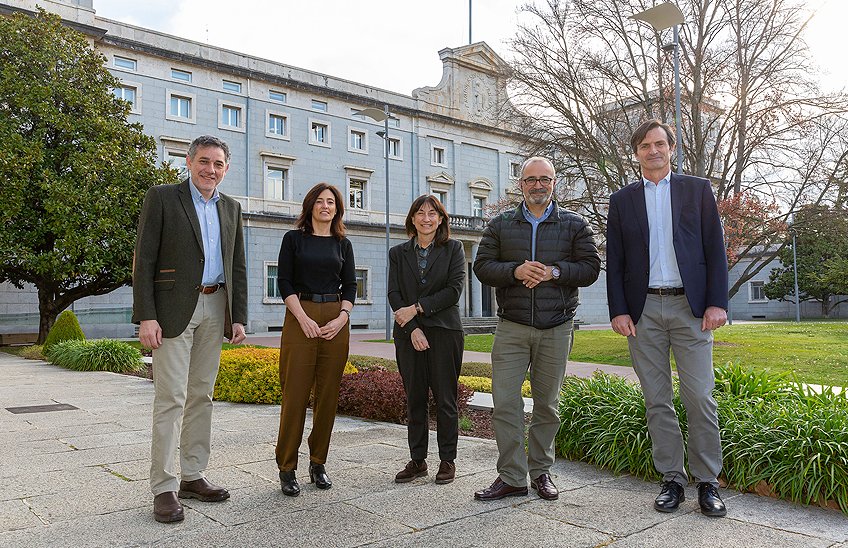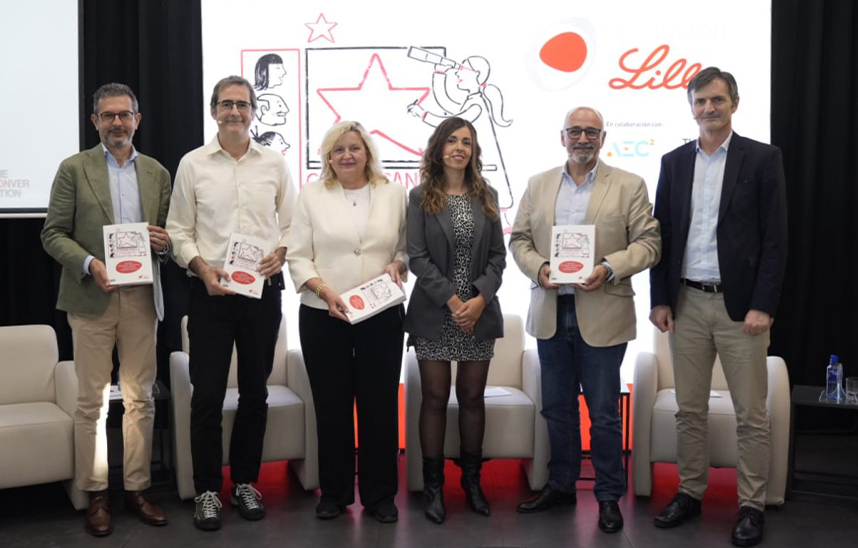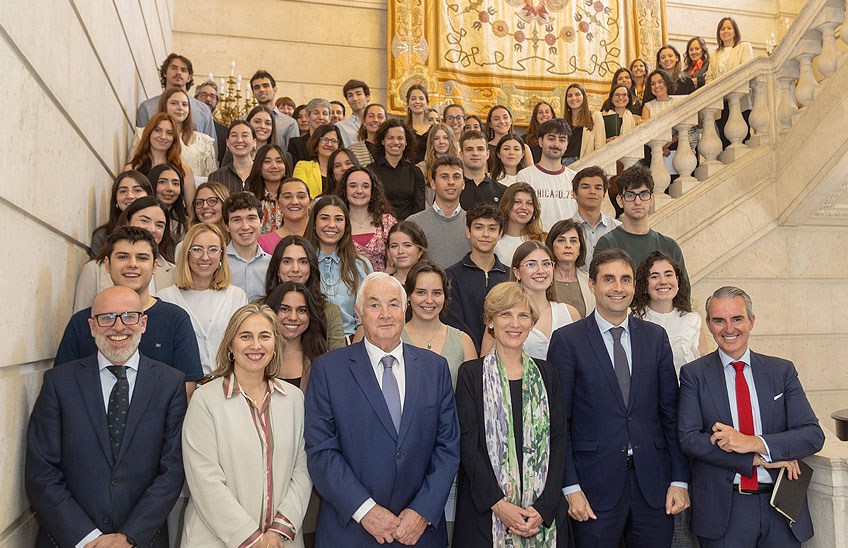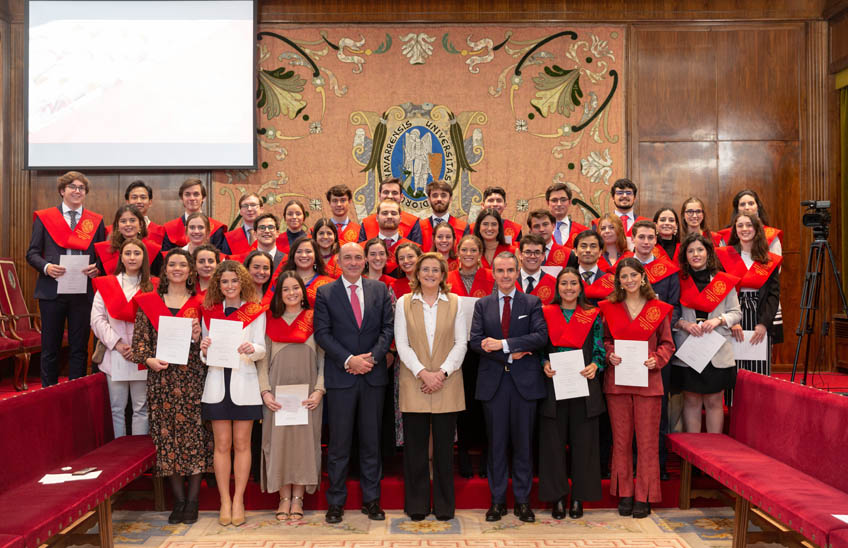Bienvenido León: "The knowledge disseminationof the processes of science and its results is the best weapon to combat the spread of hoaxes".
PLOS ONE, a high-impact US scientific journal, has published the article'Science and health misinformation about COVID-19'.

PhotoManuelCastells/Researchers at projectRRSSalud of the University of Navarra: from left to right, Ramón Salaverría, Mari Carmen Erviti, Pilar Martínez-Costa, Nacho López-Goñi and Bienvenido León.
14 | 04 | 2022
"The knowledge disseminationof the processes of science and its results is the best weapon to combat the spread of hoaxes," said Bienvenido León, lead author of the article"Science and health misinformation about Covid-19" published in the prestigious US scientific journal PLOS ONE, ranked Q1 according to the SJR (Scimago Journal Report).
Other researchers from the University of Navarra, such as María Pilar Martínez-Costa, Ramón Salaverría and Ignacio López-Goñi, have also collaborated in the articleproject. It is part of the scientific production generated by the projectof researchRRSSalud, which has been funded by the Barcelona Supercomputing Center - Centro de Computación Nacinal partnershipand the BBVA Foundation.
The study analyses the content of 533 hoaxes disseminated during the first three months of the pandemic (from 11 March to 10 June 2020) and identified by the three internationally accredited Spanish verification platforms at that time (Maldita, Newtral and EFE Verifica), and focuses on their relationship with the scientific knowledgewith a double goal: on the one hand, to identify the characteristics of form and content of such false information and the platforms used for its dissemination; and on the other, to formulate a typology that can be used to classify the different types of hoaxes according to their connection with scientific information.
The results indicate that science and health content played a prominent role in driving the spread of such hoaxes during the pandemic. The most common science and health hoaxes concerned information on scientific research(34%) and health policy and management(34%) as well as health information advice to the public (27%). They were also found to be mostly in text form, based on hoaxes, used real sources, had an international approachand were spread via social media.
Based on this analysis, the researchers propose a system for classifying science and health-related hoaxes, identifying four types, from agreementwith their connection to the scientific knowledge: hasty science, decontextualised science, misinterpreted science and unscientific falsehoods.
This rampant and widespread spread of disinformation points to two ways of curbing it: generating tools for media literacy and scientific culture among citizens, and systems for systematically detecting hoaxes.




